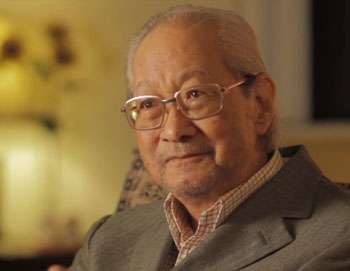About Us
Find your care
UCLA Health heart transplant patient outcomes are among the best in that nation. Call 310-825-8816 to learn more about the Heart Transplant Program.
For information about heart-lung transplants, please call 310-825-6068.
We are known worldwide as a pioneer in heart transplantation, mechanical circulatory support and artificial hearts.
We're one the world's largest and most successful programs for adult heart transplants, with more than 2,000 life-saving operations since 1984. We're also a major Western U.S. referral center for pediatric heart transplants, with more than 300 performed.
Our team of expert physicians and surgeons cares for patients with advanced heart failure, congenital heart disease, cardiomyopathy and other conditions at Ronald Reagan UCLA Medical Center and Mattel Children’s Hospital UCLA.
Why Choose UCLA Heart Transplant?

Patients choose UCLA first and foremost because of our physicians' skill and experience. We also offer several advantages not found elsewhere:
- Exceptional outcomes: Our outcomes have remained consistently high since we began doing transplants in 1984. Highlights include:
- Low rejection rates: Only 5 percent of our adult patients experience donor heart rejection, the lowest rate in the country. The national average is 25 percent.
- High patient survival rates: Our graft and patient survival rates regularly rank higher than expected, according to the Scientific Registry of Transplant Recipients (SRTR). These results are notable, considering that we routinely take on patient cases that are anything but routine.
- Fewer heart biopsies: UCLA pioneered a blood test that can identify potential rejection early. The test's reliability means our patients do not need to undergo heart biopsies at the one-year mark following transplantation — a welcome development for comfort and safety.
- Highly skilled, multi-organ transplant expertise: Unlike many centers, we transplant all solid organs. Whether you need a single-organ transplant or experience multiple-organ failure, we have the expertise, talent and resources to provide top care. We also excel in lung transplant, as the busiest thoracic transplant center in the West and the second busiest in the country.
- Latest treatments: UCLA is a dynamic environment for innovation and research. Most recently, we tested sophisticated new artificial heart devices, and we’ve brought new "beating heart" and "breathing lung" transplant technology into the operating room.
- Collaborative pediatric and adult programs. We are among the few transplant programs that can manage care from infancy through advanced age. We have the capability to implant artificial hearts and ventricular assist devices for children and adults.
- Personalized, "relational medicine." Our care isn't one-size-fits-all. We provide highly personalized patient care. We also offer a peer mentor program so patients can learn what to expect from others who have gone through similar situations. Read more about our approach to care.
VAD, Artificial Heart and Mechanical Circulatory Support
Some patients require artificial hearts or ventricular assist devices (VADs) as a bridge to transplant. Others move directly to transplant or a permanent artificial heart. We have the expertise to handle any need.
UCLA surgeons offer a wide range of mechanical circulatory support and ventricular assist devices, including the total artificial heart, with leading expertise:
- In 2015, we performed the first surgery in the world implanting a new, smaller (50cc) total artificial heart.
- We were among the first to use the original (70cc) total artificial heart.
- We were one of the first programs to use the TandemHeart, a temporary ventricular assist device, in combination with a percutaneous right ventricular assist device. Together, this new combination helped keep a patient alive until he could receive a transplant, even after his heart began to fail.
Learn more about ventricular assist devices (VAD) and artificial heart at UCLA.
Innovative Care to Expand Transplant Opportunities
We have long been one of the largest heart transplant programs in the country, with a legendary history of innovation. Many current transplant practices started at UCLA:
- Expanding the number of donor hearts. One way we've done this is by testing beating heart transplant or "heart in a box" technology, which might make more donor hearts available in the future.
- Developing new immunosuppressive therapies to avoid rejection
- Refining ways to care for complex congenital heart disease patients
- Exploring stem-cell biology and other research
Because UCLA combines an academic campus and a hospital, we can offer you breakthroughs and clinical trials that create new knowledge for the field and better results for patients. Learn more about our research and trials.